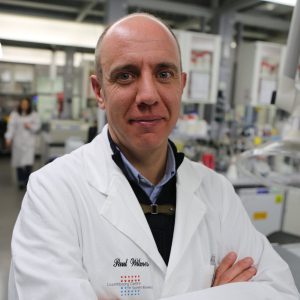
IGI Seminar Series: Systems Ecology of the human microbiome highlights functional disruptions in disease
Event Details
Add to Calendar
Location
IGIB Room 115 and via Zoom
Subscribe to our calendar to stay up to date on all our events.
Summary
The human microbiome, through its emergent properties, contributes essential functions to its host. Recent large-scale metagenomic studies have provided insights into its functional potential but have mostly focused on taxa-centric views. However, the functional repertoire which is actually contributed to human physiology remains largely unexplored. For example, the human microbiome produces a complex biomolecular cocktail in the form of small molecules, nucleic acids, and (poly-)peptides, recently defined as the expobiome. This cocktail has many bioactive properties but these have so far eluded systematic study. This overall gap in knowledge is limiting our understanding of the role of the human microbiome in governing human physiology and how changes to the microbiome impact chronic diseases including metabolic and neurological conditions through the triggering and exacerbation of disease pathways. Furthermore, without mechanistic understanding of the microbiome’s molecular complex, we are unable to rationally design microbiome-targeted therapies. In this context, the microbiome also represents a treasure trove for leads for the development of future diagnostic and therapeutic applications for chronic diseases. I will describe the current state of understanding of the functional microbiome in contrast to taxonomic views with a specific focus on disruptions of microbiome-based functions in disease. Ranging from systematic integrated multi-omic analyses of the microbiome-borne molecular complex to mechanistic studies in novel experimental systems, a clear roadmap towards translating the functional ecology of the gut microbiome into novel diagnostic applications and drugs will be drawn.
Speaker
